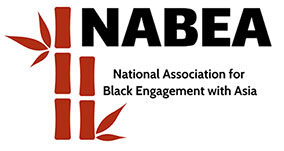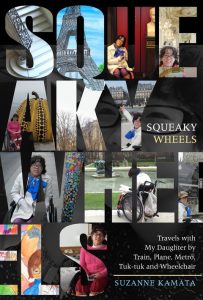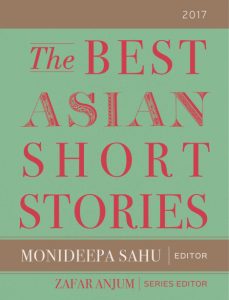Do you know about NABEA (the National Association for Black Engagement with Asia)?
**************************
We recently learned about the National Association for Black Engagement with Asia (NABEA) which seeks to connect Black Asia specialists in both the public and private sectors. They also hope to increase the representation of Black Americans engaging with Asia. Through their programming, they work towards building a mutually beneficial economic, political, social, and cultural relationship between Black America and the Indo-Pacific region.
There seems to be a natural connection between the JET alumni community and NABEA. And in fact, we’re currently aware of four JET alumni who are also members of NABEA:
- Jennifer Butler (Shizuoka-ken, 2001-2004) – Manager of Student Relations for the Ashinaga Foundation and former JETAA USA Country Representative and JETAA chapter president
- Mya Fisher (Kanagawa-ken, 2000-2002) – Founder of Global Equity Forward, a strategic consulting and advisory company for international inclusion, diversity, and racial awareness.
- Jody Dixon (Yamanashi-ken, 2009-20014) – Program Manager for the American Association of State Colleges & Universities overseeing their China-US Rising Star Study Program
- Savannah Williams (Shizuoka-ken, 2018-2020) – a Community Manager and Event Coordinator for Startup Lady Japan
According to Fisher, “NABEA is an important and growing community of Black Americans who are specialists actively engaged in Asia. Their publicly accessible and searchable database of Black, Indo-Asia experts is a great addition to the continued work of increasing representation and inclusion in the U.S.-Japan community specifically, and the Indo-Asia region more broadly.”
If you are interested in joining NABEA, go to their website for more info: http://usnabea.org/
And if you’re already a member, feel free to post in the comments section below and let everyone know!
Charles Kowalski to dissect villains at Japan Writers Conference
Posted by Tom Baker
Many JETs are writers before coming to Japan, while others find that Japan give them something to write about. And many JET writers get involved in the Japan Writers Conference, which this year is being held online, Oct. 10-11.
One of this year’s featured writers is novelist and JET alum Charles Kowalski, who will describe how to give your story a compelling villain.
Here’s the official description of Charles’ presentation:
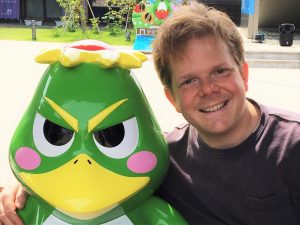
Masterminds, Minions, and Monsters: Creating 3D Villains
(Craft Workshop)
Create compelling villains that readers will love to hate! This workshop will introduce three main villain motivations (the “3 D’s”) and show how these form seven archetypes, plus six effective recruiting tools for henchmen (FLAMES), the top five justifications for villainy, and how to defeat the villain for a satisfying ending.
“A story is only as good as the villain.” – Clive Barker
Bad guys make good stories, and this workshop will focus on creating compelling villains that readers will love to hate.
Here are the questions to be asked and answered in this workshop.
What makes a compelling villain? How can the BOOM technique help create a villain with a believable backstory?
How do the three main motivations of villains intersect to form seven villain archetypes? What are the common personality characteristics of each?
What are the six tools used by master villains to recruit followers? What are the top five justifications for villainy?
What are the five main patterns of villain defeat and their common variations?
Come find out!
Charles Kowalski is the award-winning author of contemporary thrillers MIND VIRUS and THE DEVIL’S SON, and the Japan-themed historical fantasy SIMON GREY AND THE MARCH OF A HUNDRED GHOSTS. When not writing, he teaches at Tokai University.
Panel discussion on MFAs at 2020 Japan Writers Conference
Posted by Tom Baker
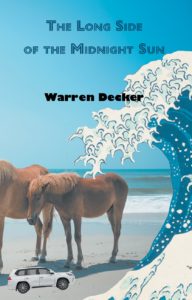
Many JETs are writers before coming to Japan, while others find that Japan give them something to write about. If you’re thinking about furthering your writing career by getting an MFA, then you might want to listen to what JET alums Percival Constantine and Warren Decker have to say about.
The two will be part of a panel discussion at the 14th annual Japan Writers Conference, titled “The MFA: The Good, The Bad, and The Expensive.”
Due to the pandemic, this year’s Japan Writers Conference is being held online, meaning there is no travel involved. Here’s the official description of Percy and Warren’s event:
The MFA: The Good, The Bad, and The Expensive
John Gribble, Kristina Butke, Percival Constantine, Alec McAulay, Warren Decker
Panel Discussion
Should I get an MFA or other graduate-level degree in writing?
Aren’t they expensive? Are they difficult? Are they any good? What sort of program should I look at? What kind of benefits should I expect to receive? These questions and others will be addressed in this session.
Masters of Fine Arts in Creative Writing and other advanced degrees with a writing emphasis have become a viable option for those seeking to improve their writing skills and advance themselves professionally. Some programs are full- or part-time on a university campus, some are on-line, some are hybrids, blending elements of both. The panelists, all with advanced writing degrees, will each talk about the programs they attended, their own experiences and answer your questions.
John Gribble is a noted gasbag. He rarely knows what he is talking about, but he states his ignorant opinions with great vigor. He has spent far too much of his life in school and other institutions. He is also a poet, co-organizer of the Japan Writers Conference and the Tokyo Writers Workshop, and earned his MFA at Warren Wilson College in Asheville, North Carolina.
Kristina Elyse Butke is an American writer, editor, and teacher who indulges in cosplay, art, and all things otaku. She has a BA in English Literature from Capital University and an MFA in Writing Popular Fiction from Seton Hill University. A former college English teacher, playwright, and composer, she now writes fantasy and horror. Her work has been published by ExFic, First Class Literary, and Synaeresis Magazine, among others. She’s also worked the convention circuit, presenting panels on writing fanfiction and genre fiction at events such as Ohayocon, Matsuricon, and Colossalcon. In terms of editing, one of her latest projects included subtitle edits for Pied Piper Inc.’s release of the anime Skip Beat!, and she currently edits and contributes to Speculative Chic.
Kristina lives in Kumamoto prefecture in Japan, where she works in multiple high schools as an assistant language teacher. When she isn’t working on all the things, she travels to shrines, hunts for Kumamon, and spends more money than she should at the JUMP shop.
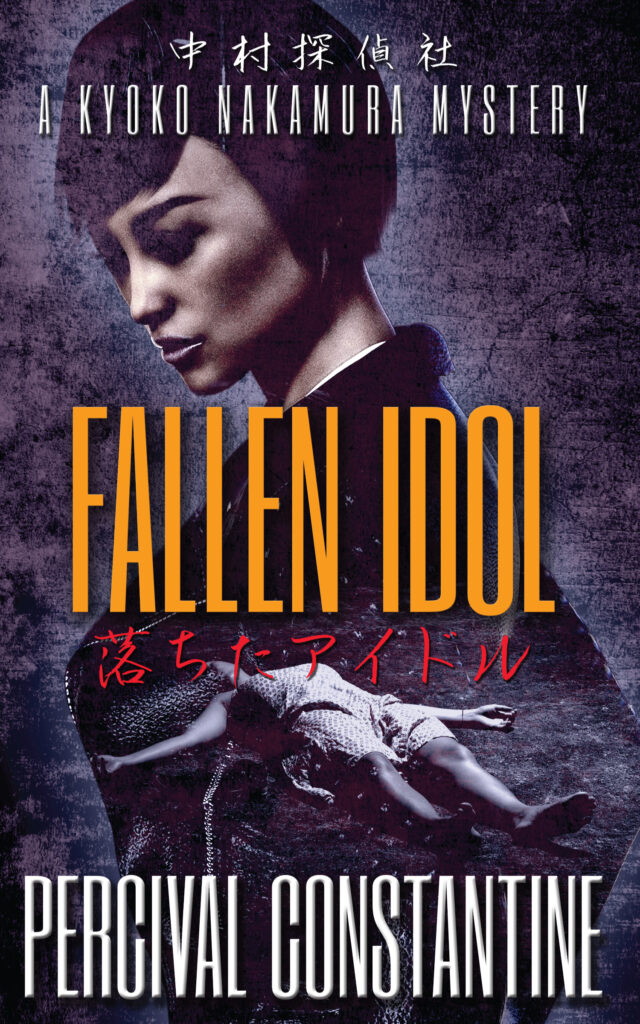
Raised on a consistent diet of superhero comics, action movies, and video games, Percival Constantine wanted to grow up and write the type of fiction he consumed. Now as a prolific author of pulp fiction, he’s written around thirty books across various genres. He’s also the host two podcasts—Japan On Film and Superhero Cinephiles. When he’s not working on projects, he somehow finds time to teach classes in literature, film, and English. Born and raised in Chicago, he’s now based in Kagoshima, Japan.
Alec McAulay is an award-winning writer and director. Originally from Glasgow, Scotland, he has lived in Japan since 1989. He teaches Creative Writing at Yokohama National University. Alec has an MA Screenwriting (Distinction), and a PhD (Screenwriting) from the Faculty of Media & Communication, Bournemouth University. His children’s novel Robot Santa (unpublished) is about a ‘hafu’ Scottish-Japanese girl who builds a robot Santa to save Christmas.
Warren Decker is a teacher and writer based in Izumi, Japan. He has published poetry, fiction, and nonfiction in The Best American Poetry 2018, The New Ohio Review, Modern Haiku, Sou’wester, and other journals. His first book of poetry The Long Side of the Midnight Sun is available from Isobar Press. He has an MFA in creative writing from the online program at the University of Texas, El Paso.
JET alum Charles Kowalski to cohost Japan Writers Conference
Posted by Tom Baker
The annual Japan Writers Conference is seeking writers, editors and translators to give presentations at this year’s event, to be held in October in Kanagawa Prefecture. Through the years, many JETs and JET alumni writers, including freelancers, have spoken at or attended this event. This year, former JET Charles Kowalski will be cohosting the conference at his university.
The organizers are aware that the coronavirus has added uncertainty to everyone’s plans this year, but they intend to go ahead with the event if it is safe to do so in the autumn. However, they are also contemplating online options, so it might become possible to attend remotely. Here’s the official announcement:
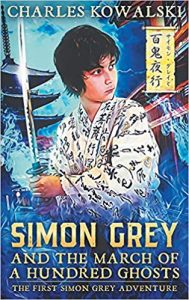 Each year, English-language writers from many fields gather at the Japan Writers Conference to share ideas and experiences on the art, craft and business of writing. In 2020, the 14th annual Japan Writer’s conference will be held on Oct. 10-11 at the Shonan campus of Tokai University in Hiratsuka, Kanagawa Prefecture. Award-winning novelist and JET alum Charles Kowalski, a popular speaker at past conferences, will cohost this year’s event with food and travel writer Joan Bailey.
Each year, English-language writers from many fields gather at the Japan Writers Conference to share ideas and experiences on the art, craft and business of writing. In 2020, the 14th annual Japan Writer’s conference will be held on Oct. 10-11 at the Shonan campus of Tokai University in Hiratsuka, Kanagawa Prefecture. Award-winning novelist and JET alum Charles Kowalski, a popular speaker at past conferences, will cohost this year’s event with food and travel writer Joan Bailey.
“The Japan Writers Conference is something special,” said poet John Gribble, a co-organizer of the event. “It is open to all, beginner to pro. It is also an annual collection of rigorous, authoritative lectures, workshops, and discussion groups. Anyone with a concern for the written and published word would benefit from coming.”
The conference is now accepting proposals for presentations. All published writers, as well as translators, editors, agents and publishers, are welcome to submit proposals.
Last year’s JWC presenters included astrophysicst Elizabeth Tasker on writing about science, novelist Evan Fallenberg on writing about sex, and screenwriter Steven Wolfson on structuring plots. Authors Holly Thompson and Mariko Nagai held a workshop on revising young adult fiction.
“This has been a year of isolation for everyone,” Kowalski noted. “But for English-language writers in Japan, that’s familiar territory, and it’s often the most fertile soil for the seeds of inspiration to take root. I hope that, come autumn, we’ll all be able to poke our heads above ground again and share a rich harvest of ideas.”
Writers and others interested in giving presentations, or simply attending the 2020 conference, can find details, including proposal guidelines and a submission form, at http://www.japanwritersconference.org. The deadline for proposals is June 1.
Run entirely by volunteers, the Japan Writers Conference is a free event open to all. Inquiries should be sent to japanwritersconference@gmail.com
JET Program Alumni Spotlight: Jonathan Kushner
Earlier this month, JET alum Jonathan Kushner was featured on the website of Connect, an online monthly dedicated to the JET Program and English-speaking community in Japan. Mr. Kushner talks about his experiences on JET and how they helped launch his post-JET career.
http://connect.ajet.net/2020/02/01/alumni-spotlight-jonathan-kushner/
Connect: The Unexpected Path of Life After JET
Lillian Hanako Rowlatt, a former JET (ALT, Niigata-ken, 2003-05) wrote an article for this month’s issue of Connect (an online monthly dedicated to the JET Program and expat community in Japan) about how her JET experience helped launched her career delivering Japanese food across the world.
Suzanne Kamata to speak at Japan Writers Conference
Posted by Tom Baker.
JET alum Suzanne Kamata will be among nearly 50 published writers making presentations at this year’s Japan Writers Conference (Oct. 12-13 in Tokyo). Here’s the official description of her talk:
“Wheelchair User or Wheelchair-bound?: Representations of Persons with Disabilities in Children’s Books”
In this session, I will discuss positive and problematic representations of persons with using examples from recently published Japanese textbooks, and literature featuring children in Japan and other countries, including my own work, with a view to developing better awareness. With the approach of the 2020 Tokyo Paralympics, people with disabilities in Japan have been given more attention than perhaps ever before. English textbooks for Japanese children now frequently include stories about or representations of people with disabilities. Worldwide, initiatives such as #weneeddiversebooks and the call for #ownvoices have led to an increase of children’s and young adult books featuring characters with disabilities. That said, some of these representations, and the way that they are discussed remain problematic. When do stories about disability become “inspiration porn”? What kind of language should we use when discussing disability? Who has the right to tell these stories?
Suzanne Kamata is the award-winning author or editor of twelve published books including “Love You to Pieces: Creative Writers on Raising a Child with Special Needs” (Beacon Press, 2008), “Gadget Girl: The Art of Being Invisible” (GemmaMedia, 2013), “A Girls’ Guide to the Islands” (Gemma Open Door, 2017), “Squeaky Wheels: Travels with My Daughter by Train, Plane, Metro, Tuk-tuk and Wheelchair” (Wyatt-Mackenzie Publishing, 2019), and “Indigo Girl” (GemmaMedia, 2019). She is an Associate Professor at Naruto University of Education.
For more details, visit http://www.japanwritersconference.org/
JQ Magazine: Book Review — ‘Perfume’s “GAME”’
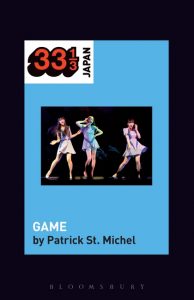
“To call Perfume’s GAME a ‘deep dive’ is both an understatement and compliment. From its very first chapter, St. Michel’s decade of experience writing about music shines.” (Bloomsbury Academic)
By Greg Beck (Hiroshima-ken, 2006-11) for JQ magazine. Greg is a writer, producer, home brewer, and Social Coordinator for JETAA Southern California and Arizona. A former news producer for Tokyo Broadcasting System in New York, he currently works freelance in Los Angeles. For more cinema reviews, follow him on Twitter at @CIRBECK #MovieReview.
If you were to ask me prior to writing this, I vaguely recalled Perfume as some heavily autotuned “girl group” from Hiroshima. Now that I have read Perfume’s GAME, all of that has changed.
Written by JET alum Patrick St. Michel (Mie-ken, 2009-11) and released earlier this year, this insightful work of nonfiction is part of a series called 33 1/3 Japan, also related to a larger, global series of short, music-based books sharing the 33 1/3 title. This book specifically goes beyond simple fandom, providing a master class on the early-to-sophomore career of the pop group Perfume, and how their album GAME would become an important influence in popular music on the international level.
To call Perfume’s GAME a “deep dive” is both understatement and compliment. From its first chapter, St. Michel’s decade of experience writing about music shines. That’s an extremely difficult task for the written word, given we perceive music using a different sense entirely. Descriptive prose does an excellent job identifying and elucidating songs and their smaller components. St. Michel starts with a modest introduction of his personal discovery of Perfume and how it helped him connect to his Japanese community, which for any JET alum should feel familiar, if not nostalgic. Next, he tells the story of the members of Perfume and their humble beginnings. Had the rest of the book been solely focused on their music, it would only be worth reading if you were already a diehard fan, but the author does much more.
Suzanne Kamata to reveal “The Truth about Writing Contests”
Posted by Tom Baker
The Japan Writers Conference, a free annual event that invariably attracts at least a few JETs, will be held at Otaru University of Commerce on Oct. 13 and 14. One of the JETs giving presentations this year will be Suzanne Kamata, who will be giving two of the 36 presentations scheduled for the big weekend. One of them was described in a previous JETwit post. Here’s the official description of the other:
“The Truth about Writing Contests”
Short lecture with Q & A
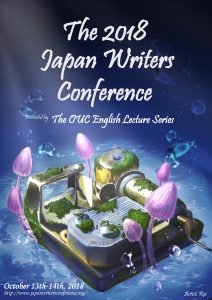 I will describe various kinds of writing contests, the pros and cons of entering said contests, and give advice on how to improve an entrant’s chances of winning.
I will describe various kinds of writing contests, the pros and cons of entering said contests, and give advice on how to improve an entrant’s chances of winning.
There are many contests for writers. Some may think that it’s not worth the time or the cost of the entrance fees. After all, many contests get hundreds of submissions, and judging is often somewhat subjective – every reader has different likes and dislikes. However, thanks to winning or placing in writing competitions, I have received plane tickets to Paris, Sydney, and Columbia, South Carolina (from my home in Japan). I’ve also been awarded cash, medals, trophies, and plaques and shiny prize stickers for my books, not to mention bragging rights and prestige. A contest win can also be an excuse for a burst of publicity. Contests may lead to recognition, getting an agent or publisher, and book sales. So how do you decide which contests to enter? How do you win? In this session I will share my expertise as a frequent contest entrant, sometime winner, and occasional judge.
Suzanne Kamata has won many awards for her writing including a grant from SCBWI for her forthcoming novel tentatively titled Indigo Girl (GemmaMedia 2018), a grant from the Sustainable Arts Foundation for her as-yet-unpublished mother/daughter travel memoir Squeaky Wheels, the Paris Book Festival Grand Prize for Gadget Girl: The Art of Being Invisible (GemmaMedia 2013), and an IPPY Silver Medal for her most recently published novel The Mermaids of Lake Michigan (Wyatt-Mackenzie Publishing 2017).
TED JETs: Amelia Hagen asks, “What if Everyone’s Wrong?”
Posted by Tom Baker
JETs tend to be interesting people. After all, every one of them has relocated to a different country at least once. It’s not surprising that many of them have also had other interesting experiences, some of which lead to insights that they end up sharing in TED talks.
This is part of an occasional series on current or former JETs who have given TED talks. Here is JET alum Amelia Hagen speaking about getting uncomfortable to find tolerance.
Tom Baker to discuss book reviewing at Japan Writers Conference
Posted by Tom Baker
The Japan Writers Conference, a free annual event that invariably attracts at least a few JETs, will be held at Otaru University of Commerce on Oct. 13 and 14. One of the JETs giving presentations this year will be Tom Baker (who wrote this post, along with a recent Japan News article previewing the event). Here’s the official description of his presentation:
 Anatomy of a Book Review
Anatomy of a Book Review
Short lecture with Q&A
“Anatomy of a Book Review” will explain how a book review is structured and what elements it should include. The key is to not merely indulge in one’s own reaction to a book, but to focus on being an informative and trustworthy guide for other readers.
A book review is like a book in miniature. It must grab the reader’s attention at the beginning, hold their interest through the middle, and leave them feeling satisfied to have spent their time on it by the end. But what goes into each of those parts and how do you put them together?
“Anatomy of a Book Review” will pin several reviews to the dissecting table to look at what parts they include and what function those parts serve. Vital organs include a catchy lead, facts about the author, and at least a sketch of the context in which the book appears.
Reviews of fiction and nonfiction will be compared. For any type of book, reviewers of course want to express their opinions. This presentation will focus on doing so in a way that fulfills the reviewer’s mission to be a concretely helpful guide for other readers.
Tom Baker has written and published about 300 book reviews over the past 20 years. He edited the Books page of The Daily Yomiuri, which is now The Japan News, where he edits the Bound to Please column. He was the ACCJ Journal’s book columnist for two years.
TED JETs: Chris Broad on being a vlogger (a word he hates)
Posted by Tom Baker
JETs tend to be interesting people. After all, every one of them has relocated to a different country at least once. It’s not surprising that many of them have also had other interesting experiences, some of which lead to insights that they end up sharing in TED talks.
This is part of an occasional series on current or former JETs who have given TED talks. Here is JET alum Chris Broad talking about his experience of becoming a YouTube star:
Holly Thompson to speak about picture books at Japan Writers Conference
Posted by Tom Baker
The Japan Writers Conference, a free annual event that invariably attracts at least a few JETs, will be held at Otaru University of Commerce on Oct. 13 and 14. One of the JETs giving presentations this year will be poet and novelist Holly Thompson, who first came to Japan in connection with the pre-JET MEF program. She will present “Half the Story: Writing for the Picture Book Market.” Here’s the official description of her presentation:
Short Lecture, Exercises and Q&A
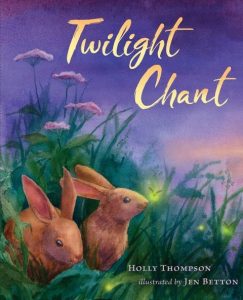 Picture book writing is a particular art. Writers of picture book manuscripts must write for page turns and create opportunities for the illustrator—writing just enough to offer possibilities. This session introduces the craft of writing picture books for current English-language picture book markets.
Picture book writing is a particular art. Writers of picture book manuscripts must write for page turns and create opportunities for the illustrator—writing just enough to offer possibilities. This session introduces the craft of writing picture books for current English-language picture book markets.
Writing is only half the story in picture books–images and text interact to tell the story together. So how do we write text without saying too much? Where in our writing should we step aside for the illustrator? And how do we compress stories for the strict count of 32 pages? How can we skill up to craft manuscripts that appeal to editors and art directors for their illustration possibility? This session will explore the anatomy of the picture book as it pertains to writers and offer guidelines for crafting fresh, marketable picture book manuscripts. We’ll examine sample picture books—fiction, nonfiction, poetry—and try some interactive exercises. We will address the current English-language picture book markets and share the gaps, openings and opportunities for writers to get a foot in the door.
Holly Thompson is author of the picture books Twilight Chant; One Wave at a Time, The Wakame Gatherers: verse novels Falling into the Dragon’s Mouth, Orchards, The Language Inside; and the novel Ash. She writes poetry, fiction and nonfiction, is SCBWI Japan Regional Advisor, and teaches at Yokohama City University.
Suzanne Kamata to introduce “Best Asian Short Stories” at Japan Writers Conference
Posted by Tom Baker
The Japan Writers Conference, a free annual event that invariably attracts at least a few JETs, will be held at Otaru University of Commerce on Oct. 13 and 14. One of the JETs giving presentations this year will be Suzanne Kamata, whose story “Monchan” appears in the “The Best Asian Short Stories 2017” anthology. Suzanne will be giving two presentations. Here’s the official description of one of them:
Kitaab Publisher Zafar Anjum and contributor Suzanne Kamata will discuss The Best Asian Short Stories 2017 anthology. Anjum will also talk about other anthologies in the works and publishing opportunities for Japan-based writers and translators in Singapore.
Zafar Anjum, who heads the independent Singapore publishing house Kitaab International, and contributor Suzanne Kamata, will introduce The Best Asian Short Stories 2017 anthology. In addition to the anthology series, Kitaab has published novels, short story collections and stories for children. Anjum will also discuss his vision for Kitaab and publishing opportunities for Japan-based writers and translators. There will be a question and answer period.
Zafar Anjum is a writer, publisher, and filmmaker who lives and works in Singapore. His books include Kafka in Ayodhya and Other Short Stories (Kitaab International, 2015), Iqbal: The Life of a Poet Philosopher and Politician (Random House India, 2014), and The Singapore Decalogue (Red Wheelbarrow, 2012). He is the founder-editor of Kitaab, an online journal and publishing company that promotes Asian writing in English.
Suzanne Kamata is the author or editor of ten published books including, most recently Screaming Divas (Simon Pulse, 2014), The Mermaids of Lake Michigan (Wyatt-Mackenzie Publishing, 2017) and A Girls’ Guide to the Islands (Gemma Open Door, 2017). Her story “Mon-chan” was selected for inclusion in The Best Asian Short Stories 2017 anthology. She is an Associate Professor at Naruto College of Education.
TED JETs: Amelia Hagen on the value of starting conversations
Posted by Tom Baker
JETs tend to be interesting people. After all, every one of them has relocated to a different country at least once. It’s not surprising that many of them have also had other interesting experiences, some of which lead to insights that they end up sharing in TED talks.
This is part of an occasional series on current or former JETs who have given TED talks. Here is JET alum Amelia Hagen (Fukuoka-ken, 2008-13) speaking about what she has learned from starting face-to-face conversations during her international travels.

